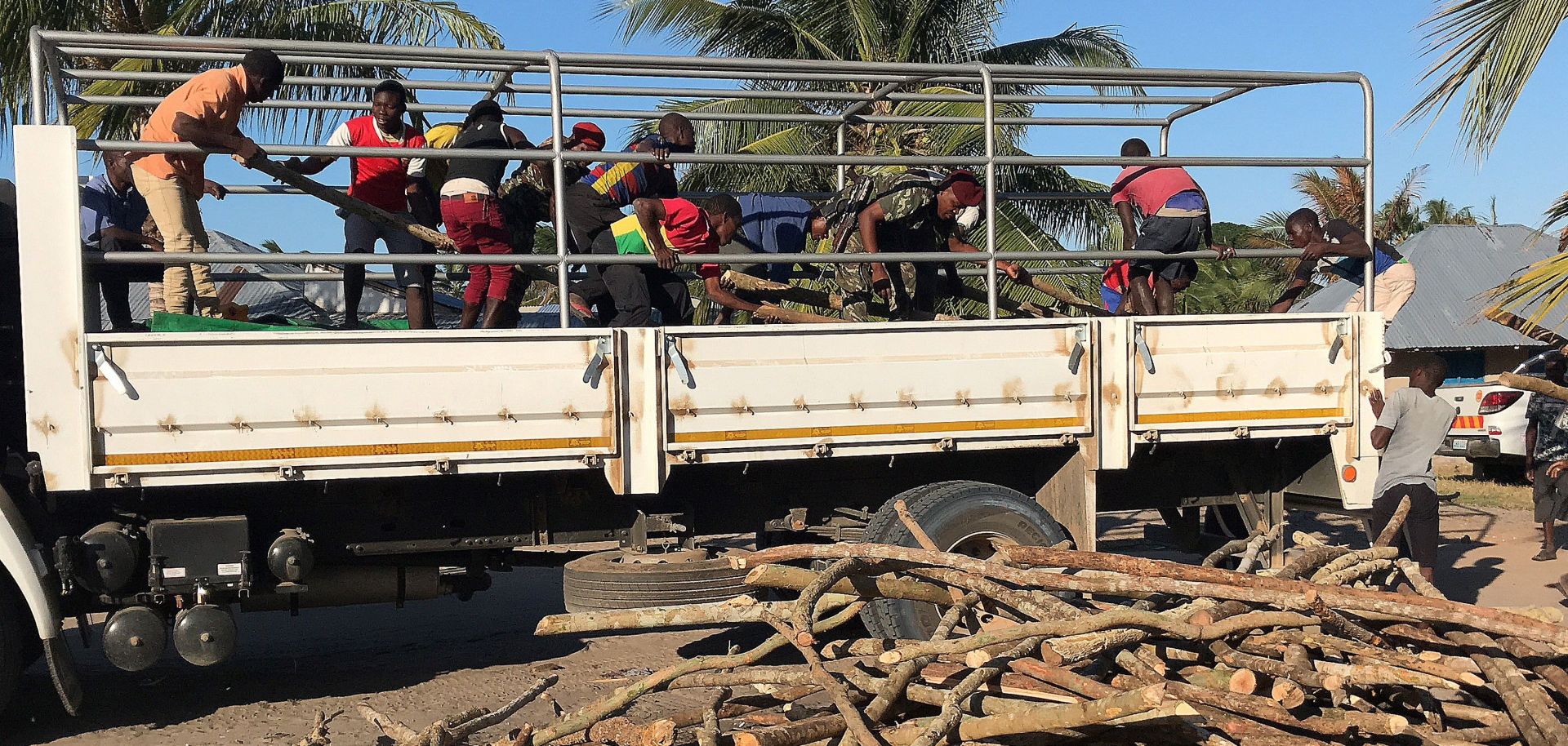COLUMNS
Gauging an Emerging Jihadist Threat in Mozambique

Jun 19, 2018 | 09:45 GMT

Internally displaced people and residents unload a truck with goods of first necessity, food and blankets in Naunde, northern Mozambique on June 13, after fleeing the recent attacks. Ahlu Sunnah Wa-Hamo has staged a number of recent attacks in northern Mozambique, but its capabilities remain limited.
(JOAQUIM NHAMIRRE/AFP/Getty Images)
Highlights
- Ahlu Sunnah Wa-Hamo could pose an increased threat to energy companies, as well as aid and development organizations, that are active in northern Mozambique.
- Effective security measures will likely suffice to protect energy installations in the area, but the group could pose a danger to softer targets such as NGOs and locals.
- In spite of some well-publicized attacks in areas that are critical to Mozambique's economic development, Ahlu Sunnah Wa-Hamo does not yet have the capacity to pose a threat to hard targets. The group also lacks support from any transnational jihadist organizations.
Subscribe Now
SubscribeAlready have an account?
